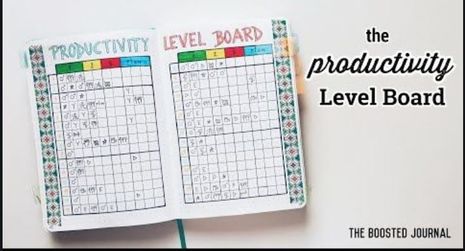Gen-Z Dread: Why Are Young People So Scared?
Georgia Goble dissects the phenomenon of widespread pessimism among the generation which grew up after the financial crisis.

Constantly anxious about your future? Scared that you’ll never get anywhere in life? It’s not just you. It’s Gen-Z Dread, and it’s a very real thing.
Millennials are the “Burnout Generation” They are the generation plagued by the financial crash, the housing crisis, student debt, falling wages and job precarity. They have endured years of financial insecurity on the ‘gig economy’, and are simply exhausted. For many millennials (those in their early to mid-thirties), worries of an impossible job market only started as they were graduating, when the 2008 financial crisis took effect. Gen-Z, however, has been surrounded by these worries since childhood–having grown up during the unusually weak recovery from this crisis.
As a result, we are terrified about our futures, convinced that job prospects are bleak, and feeling pretty hopeless.
In an investigation carried out by the Guardian, it was found that 79% of Gen-Zers worry about getting a job and 72% worry about debt. It seems near-impossible for us to consider our futures without this feeling of dread.
While this career anxiety was present in most Gen-Zers I talked to, I found it was especially prevalent in young women. Those I spoke to expressed that, with child rearing in mind, they had a “strong desire” to be financially stable and owning a house before the age of thirty. Just under half stated that they felt in a rush to gain a successful career after university. They felt impatient and “in a hurry”, which induced further feelings of stress.
But what about privilege? Surely a wealthier background mitigates this dread? To some extent, it probably does. Yet it strikes me that even the most privileged students I know are far from calm.
“Many young people cannot escape this sense of difficulty, which was a persistent feature of their world as they grew up.”
Low wage growth, job precarity, difficulty buying houses. They are not new things. But after the financial crash, these problems became more widespread across society. As a result, many young people cannot escape this sense of difficulty, which was a persistent feature of their world as they grew up. Having grown up in this climate of dread, many of us are doing everything in our power to prevent ourselves from experiencing the same struggles as the generation above. In her book How Do We Know We’re Doing It Right?, Pandora Sykes describes “a critically low mental ebb, which felt akin to burnout […] rather than being driven by the desire to succeed, [she] was powered almost entirely by […] fear”. While this symptom of “Millennial Burnout” may be temporary and fleeting, for many Gen-Zers, it was such a persistent feature of the post-crisis world we grew up in that it has tainted much of our experience. We are Generation Dread.
Students these days are desperate to achieve the perfect grades, fearful that if they don’t, they will never make anything of themselves. Just look at the phenomenon of ‘Studytube’. Studytube is a genre of Youtube that sees young people give advice on exam revision for GCSE and A-levels. They even film themselves studying, in a sub-genre called ‘Study With Me’. This is not a niche market: Jade Bowler, who goes by the screen name ‘Unjaded Jade’, has nearly 500k subscribers. It is a whole genre feeding off adolescent stress. It seems that exams have, or at least feel like they have, much higher stakes than they used to; students will turn in any direction possible and work as hard as they can to make sure that they do well.
“Of the young people I spoke too, the vast majority named fear as one of their motivations for applying for internships.”
As we make our way into university, the fear-provoked graft only continues. One young woman told me that on top of being a full-time student, she is the co-president of a society, she writes for her university newspaper, she networks, she take courses on networking, writing and the media industry, and is desperately searching for work experience. She has also recently taken a job as an (unpaid) marketing assistant. When I asked her about her impetus for doing so, she described her feelings of “angst” about being left at a loose end upon leaving university unless she does “as much as [she] can” now. “I’m terrified.” She is not alone. Of the young people I spoke to, 84% named fear as one of their motivations for applying for internships.
The mainstream media tends to talk about Gen-Z in a strikingly disparaging manner; they despair at the fact that 75% of children aged between six and seventeen now want a career as a YouTuber, or that more of us apply to be on Love Island than to Oxbridge. They relay this as evidence of our generation’s narcissism or laziness. However, is it any surprise that with prospects that seem so bleak, young people are looking for alternatives? I don’t blame them for wanting out.
Because we are not the generation defined by TikTok or Instagram or “the ability to hold a conversation and simultaneously scroll through [our] phones.” We are not a generation so self-obsessed that we can’t go a minute without posting on social media. We are a generation which has been left feeling that the world is so dismal and prospects are so depressing, that we have little choice but to worry. And worry we will.
 News / Night Climbers call for Cambridge to cut ties with Israel in new stunt15 April 2024
News / Night Climbers call for Cambridge to cut ties with Israel in new stunt15 April 2024 News / Cambridge University cancer hospital opposed by environmental agency12 April 2024
News / Cambridge University cancer hospital opposed by environmental agency12 April 2024 Features / Cambridge’s first Foundation Year students: where are they now?7 April 2024
Features / Cambridge’s first Foundation Year students: where are they now?7 April 2024 Film & TV / Dune: Part Two is a true epic for the ages11 April 2024
Film & TV / Dune: Part Two is a true epic for the ages11 April 2024 Comment / UK universities are sacrificing widening access for foreign fees11 April 2024
Comment / UK universities are sacrificing widening access for foreign fees11 April 2024




